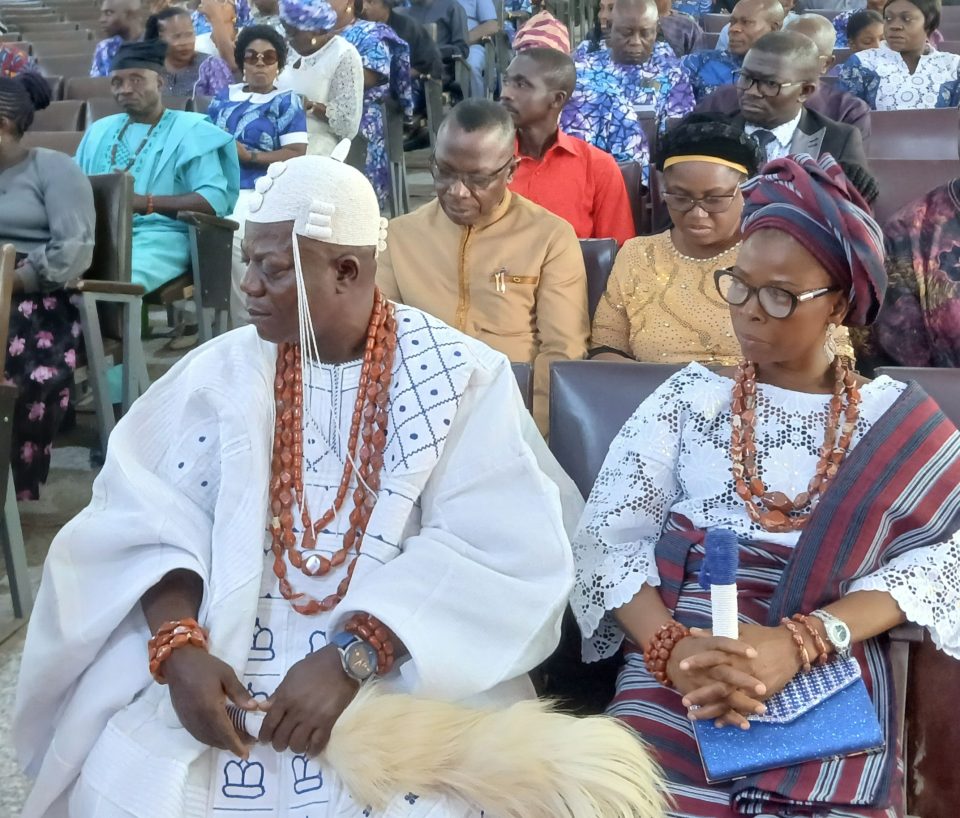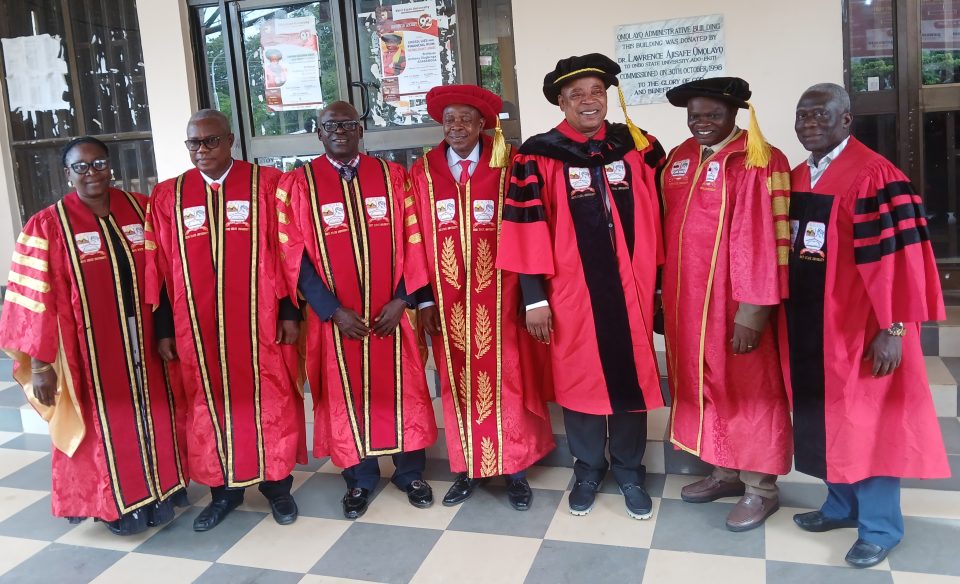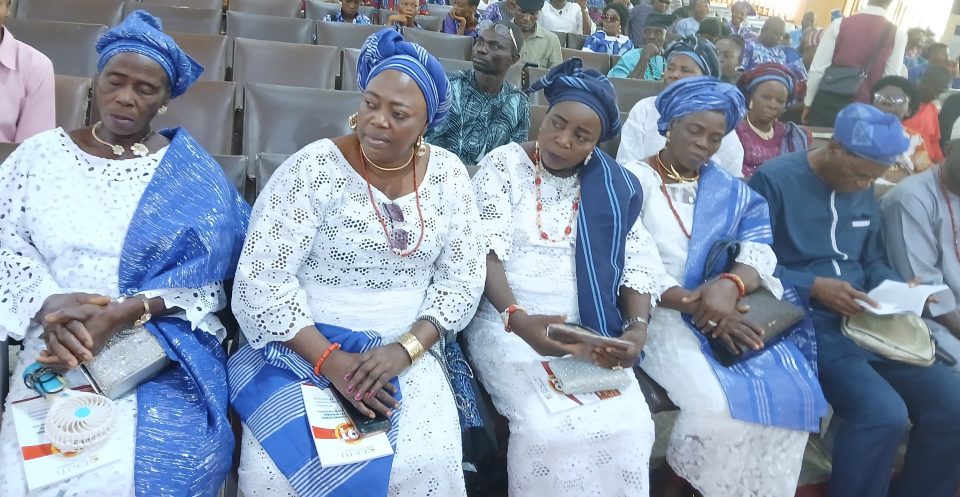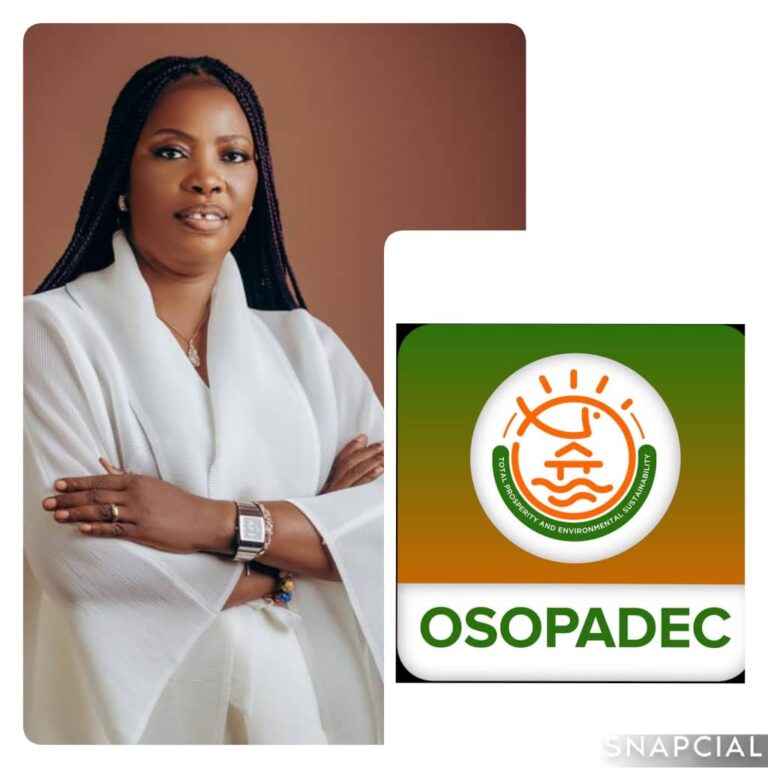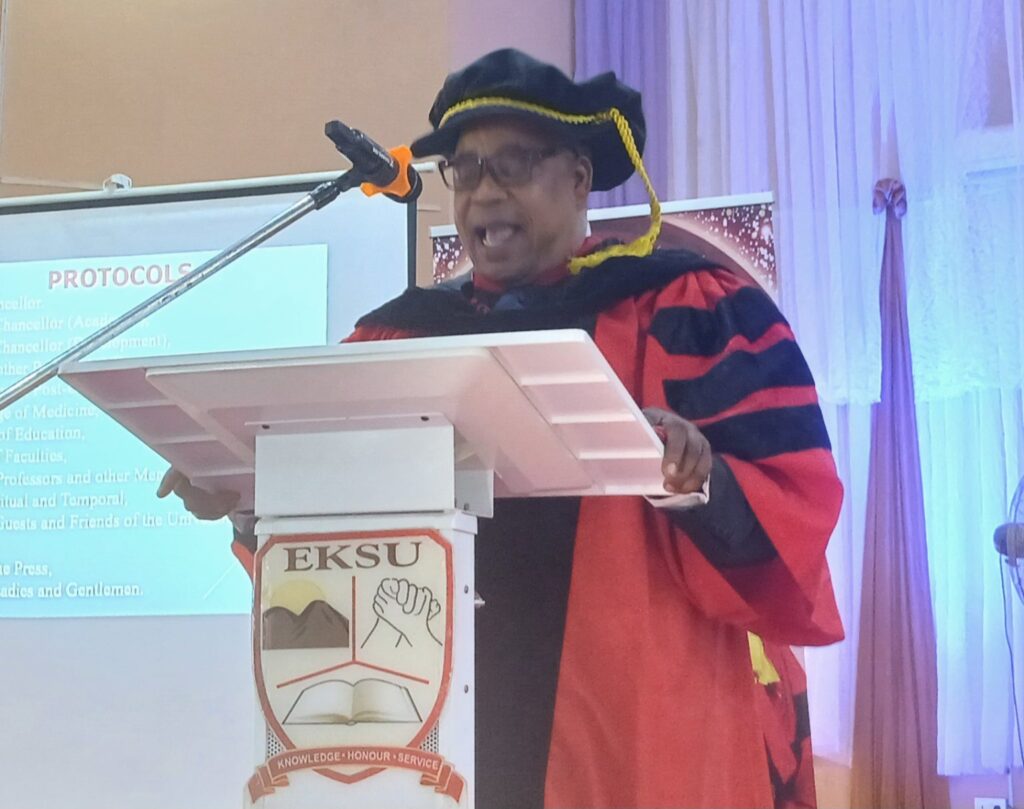
Professor Haastrup Timilehin Ekundayo of the Ekiti State University(EKSU), Ado-Ekiti, Ekiti State, has advocated for a more functional school system in Nigeria, warning political leaders against using educational policies for political gain.
The Professor of Educational Management gave the advice while delivering the 91st Inaugural Lecture of the University titled “Towards Sustaining School Effectiveness in Nigeria: the Cosmetic Politics of Stakeholders” on Tuesday, May 20, 2025 at the institution’s main auditorium.
Ekundayo emphasised the importance of a well-functioning educational system for the overall development of the country, with a charge for a system where education authorities are empowered to select leaders for schools based on merit and expertise.
According to him, “Nigeria’s wealth is neither agricultural products, nor vast solid minerals, nor oil, nor the second largest bitumen deposit in the world but the people.
“Deny the people good schooling system, the country population becomes a mere crowd, but empower them through effective schools, the population becomes the country’s major resource.”
In Ekundayo’s opinion, things are not in the right direction, and unless something urgent is done to arrest the rot in the system, the country’s future seems bleak.
The Professor of Educational Management noted that unless the rot is addressed, the leaders of tomorrow being prepared by today’s school system may not be able to deliver.
He identified some of the factors hindering school effectiveness in Nigeria to include; inadequate funding, inadequate infrastructure, security challenges, and social vices.
Ekundayo also advised that teachers should be well remunerated, urging educational administrators to be alive to their responsibilities.
In his speech, the Vice-Chancellor of EKSU, Professor Joseph Babatola Ayodele commended the Inaugural Lecturer, noting that if his recommendations were religiously implemented, stakeholders would get value for their investment in educational system.
According to Ayodele, the values are in terms of production of the highly skilled, competent, relevant and versatile human capital needed for sustainable development.
Attendees at the inaugural lecture included colleagues, traditional ruler, family, friends, students and well-wishers.

